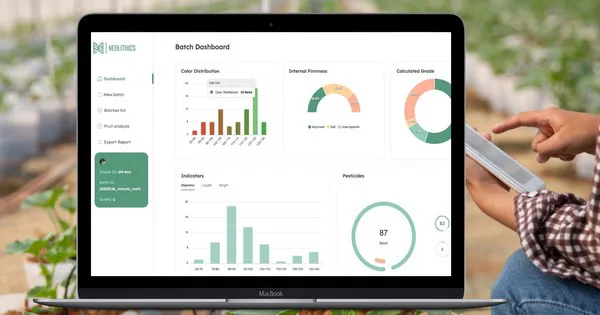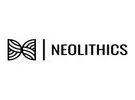The age old questions remain of when will my avocado or mango be ripe or will it ripen at all? “This can now be answered through the non-destructive quality control and inspection AI technology of Neolithics that reduces fruit waste,” says Wayne Nathanson, VP of business development for the start-up company based in Israel.

“As we validated at the recent Fruit Logistica, maturity prediction for avocados and mangos is our biggest area of interest and demand, although our technology is applicable to anyone who is distributing any variety of fresh produce. We do QC control and inspection in a non-destructive way that truly reduces food waste. We support any type of fruit or vegetable, but there is a lot of interest in predicting the maturity and shelf life of avocadoes and mangoes. Everyone seems to be able to relate to avocado’s ripeness and maturity. It is a challenge everyone wants to solve; when it will ripen, or will it ever ripen? People usually buy these types of produce when they are not ripe and if they are ripe, then the distributor should be rerouting it to food processor where it has a higher probability of being used and they can get some revenue, rather than having to throw it away. For example, the tomato packing house could send it to a ketchup maker instead,” explains Nathanson. This would increase their inventory value and reduce waste.
Neolithics non-destructive method of inspecting produce, can measure pH, Total Soluble Solids (TSS), sugars or starch or other attributes, as required for grapes or potatoes. Nathanson says there is a growing need to use their technology in Europe, as they lead the focus on sustainability and reducing the amount of food waste in the supply chain, currently estimated at over 35%.
“It is interesting that in the produce industry, most inspection is currently done manually. Being an alternative solution to manual processes is not common any more. Usually there are alternatives that are not manual – however, most fresh produce is still inspected manually, by eye or with some kind of hand held device.”
“Our uniqueness is doing inspections at high speed, providing real-time, data, while saving many hours of labour and providing more accurate and consistent information. Our technology also does this without any destruction and negative impact to the fresh produce, as we scan produce and see things that the human eye can’t. For example, measuring the brix and acidity in grapes or identifying chemical residues that are harmful for human consumption. No one else currently accurately and consistently inspects fruit and vegetables internally, at high speed, without destruction. Our solution can virtually eliminate inspection waste, not just reduce a percentage of waste,” states Nathanson.
He says Neolithics caters to any company in the fresh produce supply chain from a packing house or importer through to a food processor and grocery retailer with distribution centres. “We have a significant amount of interest throughout Europe and Latin America, who both have huge fresh produce industries and we are capable of installing and supporting our software globally.”
Nathanson says Neolithics helps reduce waste and carbon emissions and that they hope to make a positive impact on the world’s food safety and food security.
 For more information:
For more information:
Wayne Nathanson
Neolithics
Tel: +972 58 536 0755
Email: wayne@neolithics.ai
www.neolithics.ai
